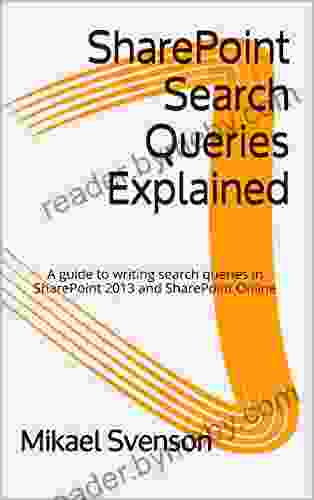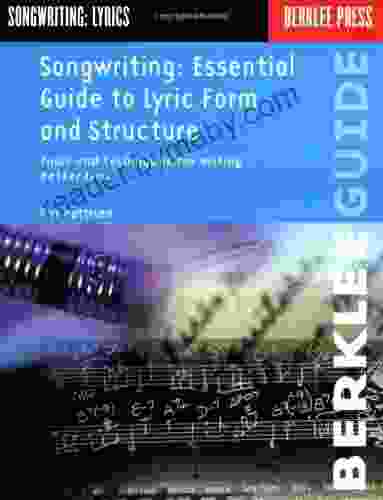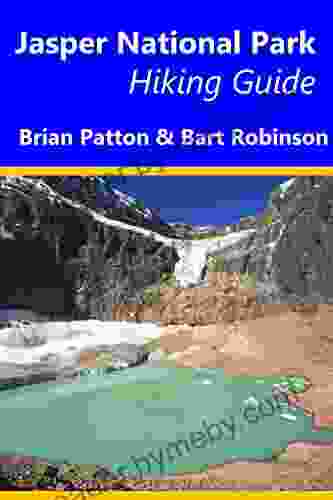Unlock the Power of SharePoint: A Comprehensive Guide to Writing Effective Search Queries

:
SharePoint, the ubiquitous enterprise content management platform, empowers organizations to manage, share, and discover critical information efficiently. Search plays a pivotal role in this ecosystem, enabling users to retrieve the relevant data they seek quickly and effortlessly. Mastering the art of crafting effective search queries is paramount for maximizing the productivity and efficiency of SharePoint users.
4.5 out of 5
| Language | : | English |
| File size | : | 2257 KB |
| Text-to-Speech | : | Enabled |
| Enhanced typesetting | : | Enabled |
| Print length | : | 113 pages |
| Lending | : | Enabled |
| Screen Reader | : | Supported |
This comprehensive guide will delve into the intricacies of writing search queries in SharePoint 2024 and SharePoint Online. We will explore advanced search syntax, operators, and techniques to help you harness the full potential of SharePoint's search capabilities.
Understanding SharePoint Search Syntax
SharePoint search queries adhere to a specific syntax that governs how keywords and operators are combined to formulate search criteria. Grasping this syntax is fundamental to constructing precise and efficient queries.
Basic Search:
At its core, a SharePoint search query consists of one or more keywords. These keywords represent the terms you are searching for in the SharePoint content repository. For example, the query "project plan" will retrieve documents containing both "project" and "plan" in their content.
Advanced Search:
SharePoint introduces a range of advanced search operators that enable you to refine and expand your search criteria. These operators include:
- AND: Narrows the search results to documents containing all specified keywords. (e.g., "project plan AND timeline")
- OR: Broadens the search results to documents containing any of the specified keywords. (e.g., "project plan OR proposal")
- NOT: Excludes documents containing the specified keyword. (e.g., "project plan NOT draft")
- NEAR: Restricts the search results to documents where the specified keywords appear within a specified proximity of each other. (e.g., "project plan NEAR/5 timeline")
Property Refiners:
Property refiners allow you to filter search results based on specific metadata properties, such as author, date created, or file type. These refiners are typically displayed on the left-hand side of the search results page.
Mastering SharePoint Search Operators
Beyond the basic search syntax, SharePoint offers a comprehensive set of search operators that provide granular control over the search process. These operators include:
Keyword Operators:
- *: Wildcard operator indicating that any character sequence can appear in its place. (e.g., "proj*" will find "project," "projects," etc.)
- ?: Single-character wildcard operator. (e.g., "pro?ect" will find "project" or "prospect")
Property Operators:
- path: Searches within a specific folder or path. (e.g., "path:"/Shared Documents/Project Plans")
- author: Filters results by author. (e.g., "author:John Smith")
- created: Filters results by date created. (e.g., "created:>2023-01-01")
Logical Operators:
- AND: Combines multiple search criteria. (e.g., "(project plan) AND (created:>2023-01-01)")
- OR: Displays results that meet any of the specified criteria. (e.g., "(project plan) OR (proposal)")
- NOT: Excludes results that meet the specified criteria. (e.g., "(project plan) NOT (draft)")
Advanced Search Techniques for SharePoint
Building upon the foundation of search syntax and operators, SharePoint empowers users with advanced search techniques to further refine their queries and maximize their effectiveness.
Phrase Search:
Enclosing a sequence of words in double quotes ensures that they are treated as a single phrase. This prevents partial matches and returns results where the exact phrase appears in the content.
Stemming and Synonyms:
SharePoint's search engine automatically expands queries to include stemmed variations of keywords and their synonyms. This ensures that related terms are also considered in the search results.
Custom Search Scopes:
SharePoint allows you to define custom search scopes to limit the search to specific content sources, such as a document library, site collection, or web.
Mastering the art of writing effective search queries in SharePoint 2024 and SharePoint Online empowers users to harness the full potential of the platform's search capabilities. By leveraging the advanced search syntax, operators, and techniques outlined in this guide, you can construct precise and efficient queries that consistently deliver relevant and comprehensive results.
Whether you are searching for specific documents, exploring related content, or conducting in-depth research, the ability to write effective search queries is a fundamental skill for maximizing your productivity and leveraging the wealth of information available within SharePoint.
4.5 out of 5
| Language | : | English |
| File size | : | 2257 KB |
| Text-to-Speech | : | Enabled |
| Enhanced typesetting | : | Enabled |
| Print length | : | 113 pages |
| Lending | : | Enabled |
| Screen Reader | : | Supported |
Do you want to contribute by writing guest posts on this blog?
Please contact us and send us a resume of previous articles that you have written.
 Book
Book Novel
Novel Page
Page Chapter
Chapter Text
Text Story
Story Genre
Genre Reader
Reader Library
Library Paperback
Paperback E-book
E-book Magazine
Magazine Newspaper
Newspaper Paragraph
Paragraph Sentence
Sentence Bookmark
Bookmark Shelf
Shelf Glossary
Glossary Bibliography
Bibliography Foreword
Foreword Preface
Preface Synopsis
Synopsis Annotation
Annotation Footnote
Footnote Manuscript
Manuscript Scroll
Scroll Codex
Codex Tome
Tome Bestseller
Bestseller Classics
Classics Library card
Library card Narrative
Narrative Biography
Biography Autobiography
Autobiography Memoir
Memoir Reference
Reference Encyclopedia
Encyclopedia Wes Moore
Wes Moore The Edward Clown Family
The Edward Clown Family Martin Miller
Martin Miller Lyle Estill
Lyle Estill Shana Nichols
Shana Nichols Michael Pedretti
Michael Pedretti Nikkole Salter
Nikkole Salter Marina J Bowman
Marina J Bowman Jill Fredston
Jill Fredston Sean Platt
Sean Platt Matthew Vanfossan
Matthew Vanfossan Sandra Gerth
Sandra Gerth Martin J Dockery
Martin J Dockery Nato Thompson
Nato Thompson Shawn Kelly
Shawn Kelly Paul Bellow
Paul Bellow Kevin Bridges
Kevin Bridges Mia Michaels
Mia Michaels Nitish Singh
Nitish Singh Oluwatosin E Adeyemo
Oluwatosin E Adeyemo
Light bulbAdvertise smarter! Our strategic ad space ensures maximum exposure. Reserve your spot today!
 Quincy WardFollow ·19.4k
Quincy WardFollow ·19.4k Efrain PowellFollow ·9.8k
Efrain PowellFollow ·9.8k Mason PowellFollow ·12.7k
Mason PowellFollow ·12.7k Douglas AdamsFollow ·17.9k
Douglas AdamsFollow ·17.9k Jermaine PowellFollow ·3.1k
Jermaine PowellFollow ·3.1k E.M. ForsterFollow ·14.5k
E.M. ForsterFollow ·14.5k Earl WilliamsFollow ·11.4k
Earl WilliamsFollow ·11.4k Jack LondonFollow ·3.9k
Jack LondonFollow ·3.9k
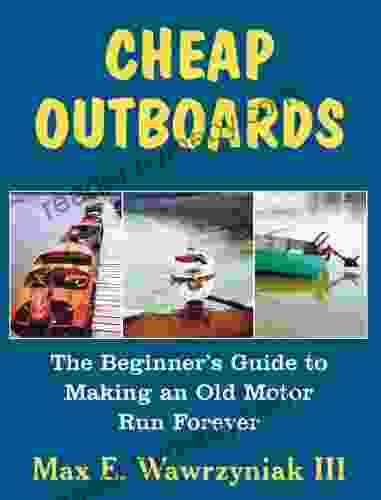
 Wayne Carter
Wayne CarterThe Beginner's Guide to Making an Old Motor Run Forever
If you're like most...

 Deacon Bell
Deacon BellNepali Adventure: Kings and Elephant Drivers,...
In the heart of the...

 Carlos Drummond
Carlos DrummondThe Romantic Revolution: A Journey Through History and...
Unveiling the...

 Kazuo Ishiguro
Kazuo IshiguroUnlock Your Inner Innovator: Dive into the New Wave...
Embark on a Transformative Journey of...
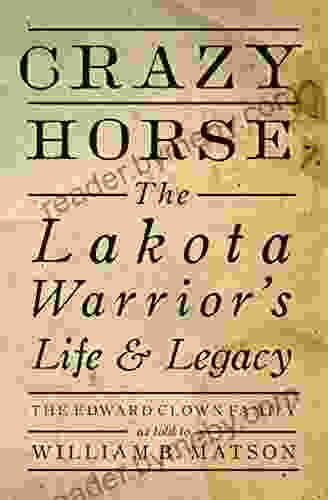
 William Golding
William GoldingCrazy Horse: The Lakota Warrior's Life and Legacy
In the annals of Native...

 Hector Blair
Hector BlairMildred and Richard Loving: The Inspiring Story of...
Mildred and Richard Loving were an...
4.5 out of 5
| Language | : | English |
| File size | : | 2257 KB |
| Text-to-Speech | : | Enabled |
| Enhanced typesetting | : | Enabled |
| Print length | : | 113 pages |
| Lending | : | Enabled |
| Screen Reader | : | Supported |


